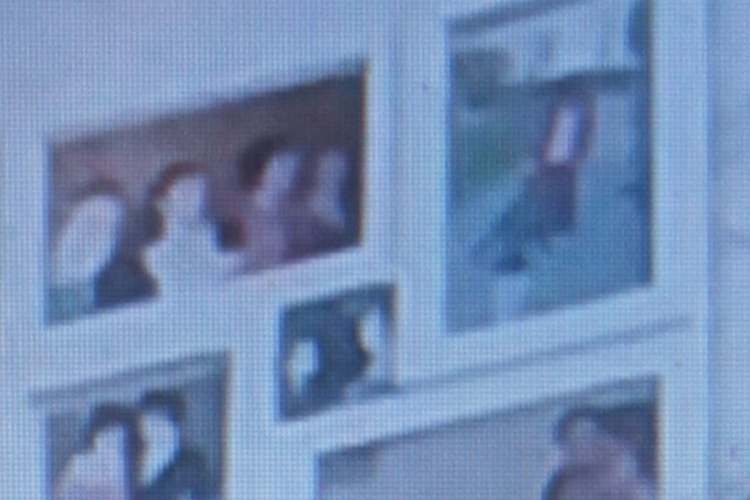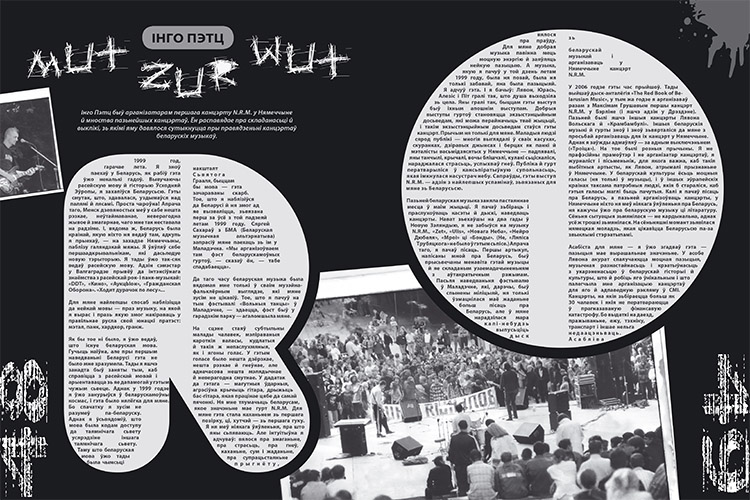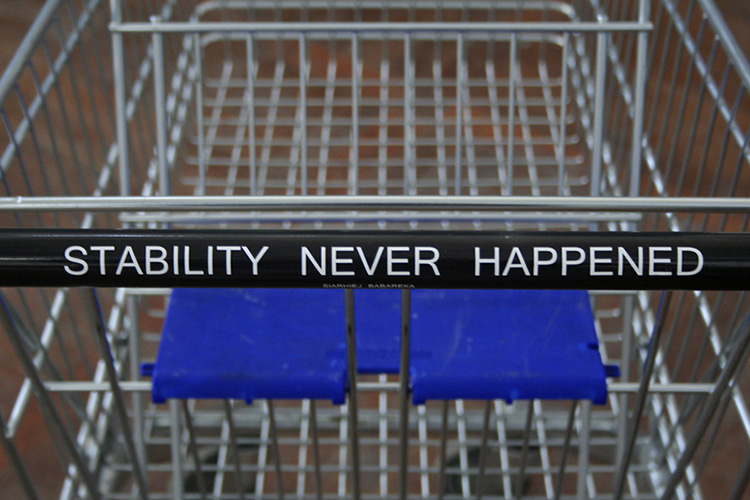
Аўтар: pARTisan, 31/05/2014 | Cult Aktivist Offside SPECIAL
WHAT DID WE GET: THE REPRESSIVE MECHANISM OR FREEDOM?
The discussion «Sport and the Body of the City» was held on May 22, 2014 within the exhibition and discussion project «OFFSIDE». The discussion fragments are presented below.
The participents: Tania Arcimovič,theatre director, art-critic; Dzmitry Bibikaŭ, urbanist, founder Minsk urban platform; Hieorhi Zaborski, architect, founder of artistic free space ME100; Dzmitry Karenka, culture research. Moderator – Volha Šparaha.
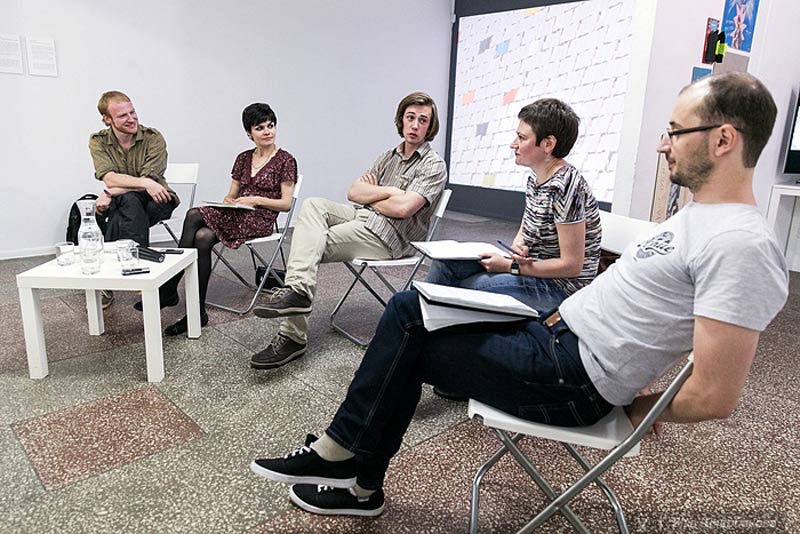
Volha Šparaha: Today our discussion focuses on how Minsk has changed and what changes it will continue to undergo being influenced by the World Hockey Championship (the WHC). There was a proposal of an interdisciplinary approach to the subject, so the participants from different fields have been invited. We would like to start with a question: what areas can be identified in the course of the preparation for the WHC, and what has changed in the urban landscape during this event? Then we would move to the question of the impact the changes have on the future of our city and on us.
Dzmitry Bibikaŭ: Mega-events like the WHC often act as a strategic part in the urban development. And such accompanying infrastructure projects as the completion of Dziaržynski Avenue, the construction of Malinaŭka metro station and the Museum of the Second World War should be considered exactly in this regard. In addition, of course, there are changes, which are clearly associated with the WHC. For example, students’ relocation and the construction of the Čyžoŭka Arena. But if you talk on a larger scale, then the WHC in some sense provoked the accelerated development of the city, its image component began to play a strong part.
But, as you know, a lot of projects that had been scheduled to be completed before the WHC, were never finished. But I am not worried, it is more important that they did it.
Hieorhi Zaborski: I would like to indicate the coordinate axes. On the one hand, the city has always been a repressive instrument, that is an instrument by which man and society are limited in a certain way. On the other hand, the city has always been a tool for acquiring freedom. The history of the cities birth and growth shows that the city was initially formed as a repressive tool that set rules and organized the existence that was beneficial for those authorities that had created it. Such a characteristic of the city as its ability to bring more freedoms arose spontaneously. In the last 15 years the opposite tendency can be traced — that is how creating freedoms becomes a city task. Since it became clear that freedom can be economically profitable and it can be sold. But suddenly, instead of freedom the city regains its repressive properties. This is one of the coordinate axis, which I would like to highlight.
That is I am interested in learning what we got due to the WHC: the repressive mechanism or freedom?
The second axis is its purposeful or accidental nature. Did the preparation for the mega-event really match a reasonable — with a variety of strategic options — city plan? Was it accidental? Just grabbed the opportunity and tried to make use of it? Perhaps, this is a test of Minsk (although I do not think that the officials actually thought about it) for its possibility to host a large number of foreign tourists and in general future European scale events. I want to hope that this is not a one-time event, but an attempt to move the city to another level. If so, then the city would really change. We will see later if it would change for the better or worse.
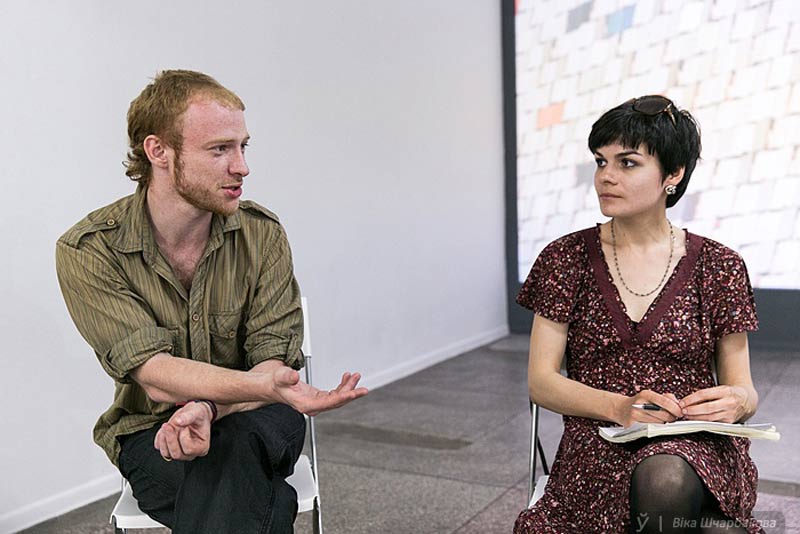
Hieorhi Zaborski, Tania Arcimovič
Tania Arcimovič: For me personally the perception of the WHC as an event that can potentially change the body of the city, has fallen into two stages: before and during the event. I tracked the information about the city’s preparation for the event, we know that many of the innovations faded away, whereas in the media, especially the state one, they said about the crowds of tourists, etc. And to be honest, due to this there was a certain anxiety, also because of the fact that it was absolutely unclear what other «innovations» can be expected from the state. And thus on May, 9th I went into town to see how it had changed dramatically, but I was disappointed: nothing radically different had happened. So I share one idea of Ben Cope’s, who, together with Miadrag Kuch held a lecture in the framework of our project on May, 9th — the idea that perhaps the concept of «mega-event » is basically fake.
It creates an illusion that the world’s attention will be focused on you. Rather, we can talk about it as a media event, especially within the country borders.
If we consider the changes that apparently occurred in the city and with the city, I would agree with Dzmitry Bibikaŭ that it was a part of the city development plan in general, and the WHC only speeded up certain processes. Although what concerns the English language on metro or Latin transcription, here, of course it was the WHC that had its say. But, in my opinion, one should not pay so much attention to the WHC. The changes in the city (unfortunately, often not for the better) occur beyond the event. For example, a new project of Asmałoŭka that threatens the existence of an important historical part of the city, the restoration of Kastryčnickaja street, the destruction of the architectural ensemble in the area of the Tractor factory, which has been taking place these years.
It is a pity that in our discussion environmentalists could not participate. In my opinion, we discuss this side of the changes very little. Yes, a lot of objects have been built, but did they plant trees, did they create any parks? Until now we see the green area being reduced especially in the center, and this fact is neglected.
V.Š.: But apart from the changes that have already been named, the cultural landscape has also been modified dramatically. Around a dozen of major exhibitions with different concepts are held. Of course, the state concept dominates, but there are alternative proposals, for example, «OFFSIDE». A lot of discussions are conducted and suddenly they began to be organized in new places, as well. Many other activities are held. Might one hope that it will continue after the WHC is over?
T.A.: Most of the projects and initiatives are still linked to a particular state proposal. The question is whether some of these projects would take place if there were no requests from the authorities. While the concept of most of these activities is mainly related to a sort of «decorative» nature, the creation of a specific theatrical background for the WHC aimed at demonstrating the achievements in the sphere of culture. I would not go into details, as there are many different nuances within the projects themselves, but it seems to me that afterwards the same institutions and the people who had been active before remain visible.
As long as this phenomenon of the request «from the top» is present, it is difficult to talk about positive changes.
I would also like to add about freedom and repressiveness. The names of the places created specifically for fans were a long lasting debate matter — «hospitality area» or «fans’ zone». And the words themselves immediately imply a lot, despite the fact that inside those areas there is a full orgy, especially what regards alcohol. It is interesting to note that freedom is placed inside a «zone», but the way it is understood (and the organizers basically do not mind) is also a specific test.
Dzmitry Karenka: If we talk about the changes that have occurred with the city due to the WHC, then, of course, there have been a number of them, given the scale of the event. As in the case of other «mega-events», Minsk urban space has faced tourist-centered transformations: the number of hotels and hostels rose, transport organization was changed, street signs in English and metro stations announced in English appeared, as well as different tourist services (one could even ride a horse along the main city avenue). As for the cultural dimension changes, we can note the official use of the Belarusian Latin translations in the names of metro stations, the appearance of a large number of cultural activities and facilities, including those related to the culture of leisure — the creation of recreation areas and the increase in the amount of coffee houses (it was stated that before the WHC about 250 new stores had been planning to open their doors).
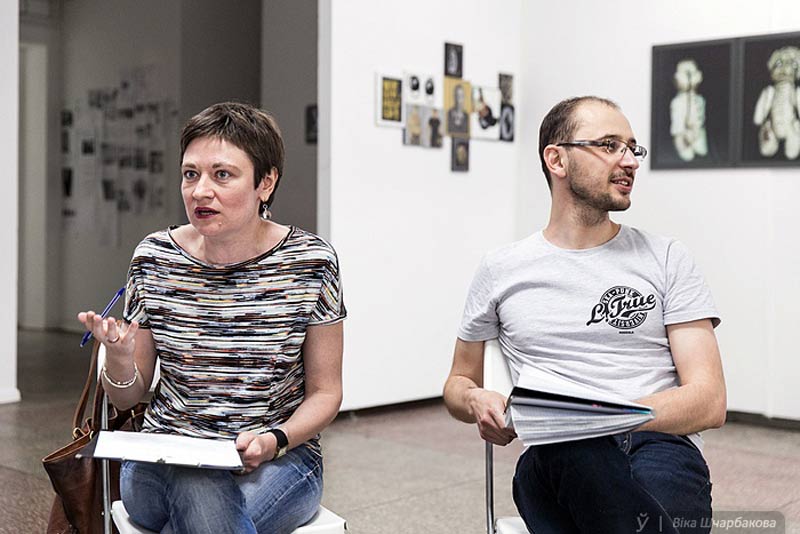
Volha Šparaha, Dzmitry Karenka
There is one more aspect, typical for this kind of «mega-events» with regard to the changes in legislation. An interesting situation has been formed here. On the one hand, this was a legislative experiment with the abolition of visa barriers, opening the country to foreigners, welcoming foreign sponsors, etc. On the other hand, it is an experiment with an almost complete ban on the sale of imported beer for the WHC period.
Thus, a structural tension arose: openness to globalization is accompanied by an increased protectionism in domestic politics.
What regards the political dimension, we saw that there was a ban on the practice of political expression: before the WHC there took place a wave of preventive arrests aimed at «filtering out» those who might be able to «spoil» The Holiday …
V.Š.: Dzmitry touched upon many aspects directly related to the city. He also mentioned new cultural meanings that the city got filled with. We see that the government has added culture to sport. Political expression was prohibited, but, they say, look, we have such a diverse cultural sphere! But the culture can also be a way of showing one’s country, citizens, but without political expression.
H.Z.: There is another important point: how does the fact of being observed from the outside influence the city administration and the citizens? We are used to live here on our own, sometimes we bring our friends, and now we feel that we are really closely scrutinized. And it is interesting to know whether this feeling would persist.
Would the presence of not only foreign journalists, but also ordinary people from other countries be felt? How would it affect political, cultural, and social processes — this question still remains open.
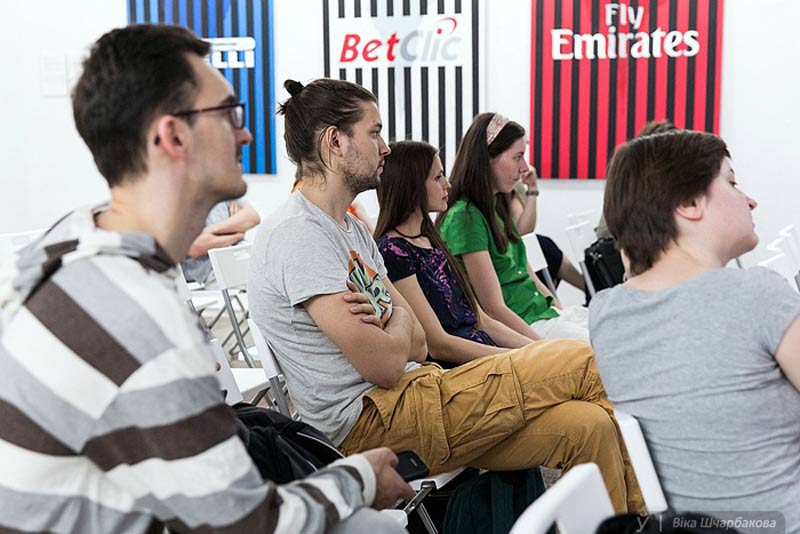
V.Š: By the way, foreigners do notice decorative nature. They see artificiality, mismatch between what is declared and what actually exists. But, obviously, within such mega-events the freedom of the city can be tested, the organization of the initiatives that had not been possible before. And the question arises: who controls it all? Only the authorities? For example, we know that young people now on the streets shout «Belarus», that is at last the word «Belarus» can be pronounced out loud in public spaces. But my friend mentioned that when he saw the youth he wanted to join them shouting «Long Live Belarus!», since this wording better corresponded to his views. And he wrote: «Someone immediately covered his mouth, and some eyes lit up». Thus, we can witness this control over what is happening in public space not only as coming from the institutions or authorities, but also from the citizens themselves.
But it is rather positive, as usually ordinary citizens do not have enough autonomy in decision-making in the urban space.
H.Z.: I would like to speak in defense of decoration. I have just recalled the words of one American designer of the 1970s, who said: «Fake it ’till you make it». And indeed «imitation» sometimes leads to the achievement of the goal. The same thing can happen with the city, which now pretends to be open, but through the external reaction it can go to the next level. Thus, in the process of simulation experience is obtained.
D.B.: I would like to mention one more thing that maybe only concerns me: red-green patriotism which suddenly manifested itself during the match against Russia. Yes, we lost, but it became clear that at least in hockey we are on different sides.
I’ll be back to the issue of changes. In my opinion, yet there have been no significant changes due to the WHC. Take the same issue of the pedestrian street: people who live in that street used to complain about the noise. There were attempts to move it to the Revalucyjnaja Street now they say it is in Płošča Svabody…
H.Z.: But the Karl Marx Street set of constraints is, in fact, repeated, with the only difference that there are no residents in Płošča Svabody. And so if the Marx Street residents complained about drums, who presents complains in Płošča Svabody is not clear.
D.B.: If we continue to talk about the changes, I looked at the examples of other cities, and actually there were conflicts there: for example, people were evicted. Here only students were evicted, but maybe it is even for the better, since dormitories were finally built up. The same thing regards other objects, whose construction speeded up. However, the building of the power plant is now lost forever, and nothing can be done about it. Therefore, if we talk about the architectural significance of the mega-event, a question arises: what directed is it aimed at — into the country or out of it? We see a lot of simulations: the speaker’s accent on the railroad, at some metro stations English ad versions are reduced.
That is how much these foreigners were really wanted here, taking into account that most of them come from Russia? Here we discuss more the way we are seen by the Western Europeans, but it is interesting how the vision of the Russians has changed, too.
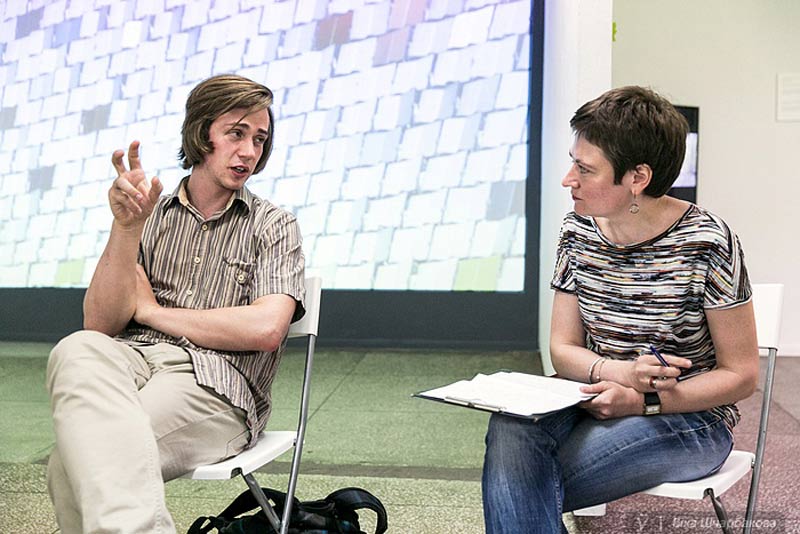
Tania Arcimovič, Volha Šparaha
H.Z.: About the consequences in terms of architecture. It is clear that those two giant arenas that we have now, would not be filled up with the same intensity level, also because of their similar formats. The possibility of their use is limited. In this regard, I wonder if we can prepare beforehand that we would have a lot of unclaimed property? We will be ready to fill it in with something interesting? If the hotels are filled only by 20%, are we ready to offer the city some different strategy?
Т.А.: Looking to the future, I am curious to meditate about possible changes in the minds of the Belarusian society. From the very beginning I was in Minsk for the WHC because it was obvious that the Belarusians remain mentally and partially physically isolated from the globalized world. They form their standpoint about the world and the foreigners looking at TV screens. And then there suddenly came an opportunity not only to personally experience the look of others, but to get engaged with them into direct communication, learn that a foreigner does not always mean expensive restaurants, hotels and taxis, but mostly cheap accommodation and metro. That is, they are people like us. I see this as a big plus.
Confrontation with these others, in my opinion, also helps to ensure that the Belarusians started thinking about their place in the global sphere. I had an eye-opening conversation with a taxi driver who said that after the WHC he would become a xenophobe, especially with regard to the Russians, who, according to his observations, were the worst of the tourists, because they are very rude. «Why do they abuse me?» — he was asking me furiously. Later he began to tell me that the Belarussians actually were not Russians at all, although, of course, the nation survived the process of Russification, he referred to the Great Duchy of Lithuania, the Polish-Lithuanian Commonwealth, etc.
Thus, in this respect the WHC can really be such a catalyst for important processes of understanding the Belarussian identity.
Photos © Vika Ščarbakova
Opinions of authors do not always reflect the views of pARTisan. If you note any errors, please contact us right away.



